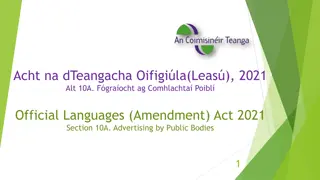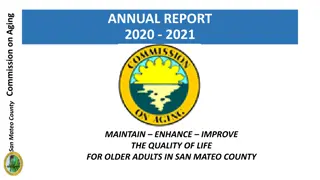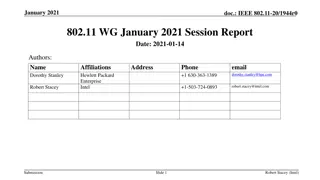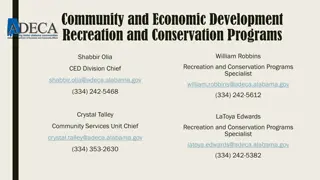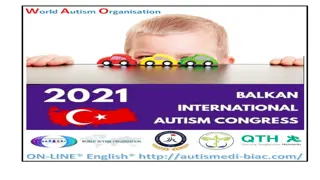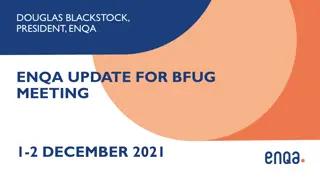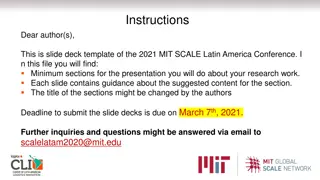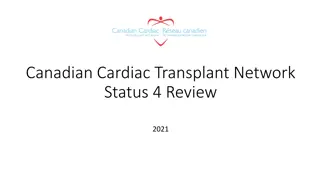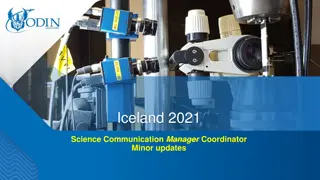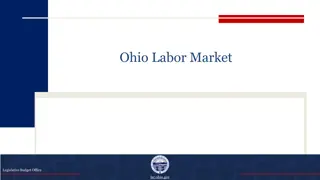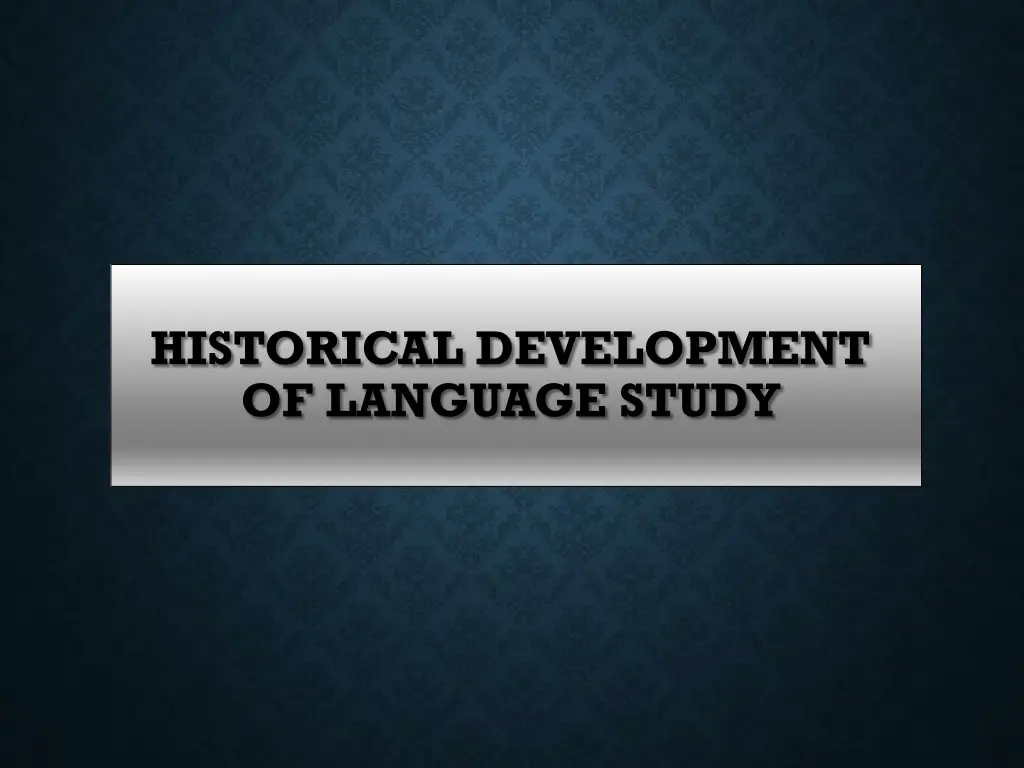
Evolution of Language Study from Chomsky to the 21st Century
Explore the historical development of language study, starting from the revolution sparked by Noam Chomsky in the mid to late 20th century with generative linguistics to the modern focus on language universals and cognitive abilities in the 21st century. Linguists have shifted towards a less rigid framework like Optimality Theory to describe and analyze language structures.
Download Presentation

Please find below an Image/Link to download the presentation.
The content on the website is provided AS IS for your information and personal use only. It may not be sold, licensed, or shared on other websites without obtaining consent from the author. If you encounter any issues during the download, it is possible that the publisher has removed the file from their server.
You are allowed to download the files provided on this website for personal or commercial use, subject to the condition that they are used lawfully. All files are the property of their respective owners.
The content on the website is provided AS IS for your information and personal use only. It may not be sold, licensed, or shared on other websites without obtaining consent from the author.
E N D
Presentation Transcript
HISTORICAL DEVELOPMENT OF LANGUAGE STUDY
MID TO LATE 20TH CENTURY A revolution was sparked by the American linguist Noam Chomsky who initiated the era of generative linguistics. Chomsky agrees with Bloomfield s idea that linguistic theory needs to be able to lay down a grammar (set of rules) that is able to distinguish possible from impossible sentences in a language. Yet unlike Bloomfield, Chomsky believed that such a theory should be more than a description of old sentences but also sentences that have not been produced yet.
MID TO LATE 20TH CENTURY Chomsky pointed out that anyone who knows a language must have internalized a set of rules which specify the sequences permitted in their language. Thus, Chomsky shifted attention away from detailed descriptions of actual utterances, and started asking questions about how the system of that language generates these utterances. In Chomsky s opinion, a linguist s task was to discover these rules, which constitute the grammar of the language in question.
MID TO LATE 20TH CENTURY Chomsky therefore used the word Grammar interchangeably to mean, on the one hand, a person s internalized rules, and on the other hand, a linguist s description of these rules, which he labeled a generative grammar. Such a grammar should be perfectly explicit, in that nothing is left to the imagination. The rules must be precisely formulated in such a way that anyone would be able to distinguish between well- formed sentences and ill-formed ones.
MID TO LATE 20TH CENTURY Chomsky pointed out that as all humans are rather similar; their internalized language mechanisms are likely to have common properties. Therefore, he argued that linguists should concentrate on finding language universals. Chomsky s later work, which is called Minimalist Program, became more and more abstract, as he tried to specify broad general principles underlying all languages.
21ST CENTURY Chomsky s generative grammar and his interest in studying language universals have directed attention towards the language potential of human beings. Thus, huge numbers of psychologists, neurologists, anthropologists, sociologists and philosophers have begun to take a greater interest in language and linguistics. Linguists have started to look at language as a collection of different cognitive and linguistic abilities.
21ST CENTURY Linguists have started a quest for a less rigid framework to describe and analyze language. Optimality Theory is an example of such a framework. Optimality Theory suggests that the grammatical forms of a language arise from the optimal satisfaction of conflicting constraints. Linguistic evidence can now be provided by methods developed in Corpus Linguistics, which refers to the study and use of computerized databases for linguistic research.




